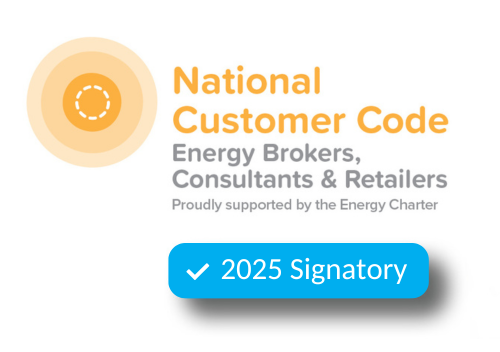
Introduction to Climate Disclosure under the Australian Sustainability Reporting Standards (ASRS)
With the Australian mandatory climate disclosure regime, which came into effect on 1 January 2025, many businesses are now required to disclose climate-related financial risks within their financial reports.
The Australian Sustainability Reporting Standards (ASRS) are a set of mandatory sustainability disclosure requirements being developed by the Australian Accounting Standards Board (AASB) to enhance transparency and comparability of corporate sustainability-related financial disclosures. These standards aim to provide investors and stakeholders with consistent, reliable information on environmental, social, and governance (ESG) risks and opportunities faced by businesses.
By aligning with IFRS and ISSB, the ASRS supports Australian businesses in integrating sustainability risks into financial reporting, meeting investor expectations, and maintaining credibility in global capital markets.
Key Features of ASRS
1. Who Must Report?
- The implementation is phased:
- Group 1 (Large entities) – Reporting starts 1 January 2025.
- Group 2 (Medium entities) – Reporting starts 1 July 2026.
- Group 3 (Smaller entities) – Reporting starts 1 July 2027.
2. What Needs to Be Reported?
- Companies must disclose:
- Climate governance and risk management approaches.
- Climate risks and opportunities, including physical and transition risks.
- Greenhouse gas emissions – initially Scope 1 and 2, with Scope 3 emissions included in later years.
- Transition plans, including emissions reduction targets, mitigation strategies, and integration into business strategies.
3. Why Are These Disclosures Required?
- Investors demand better insights into climate-related risks.
- Ensures long-term investability and business resilience in a carbon-constrained world.
- Regulatory compliance aligns with global sustainability efforts.
The Importance of Understanding GHG Emissions in Electricity and Natural Gas Supply Contracts
Greenhouse gas (GHG) emissions reporting is a critical component of sustainability disclosures, particularly for businesses with significant energy consumption. Under the Australian Sustainability Reporting Standards (ASRS), companies are required to disclose Scope 1 and Scope 2 emissions, with Scope 3 emissions reporting phased in later. This makes the choice of electricity and natural gas supply contracts a key consideration for businesses aiming to improve sustainability performance and meet compliance obligations.
How Energy Retailers Differ in GHG Support
Not all energy retailers provide the same level of GHG emissions transparency and sustainability support. Some retailers offer:
- Detailed carbon emissions reporting, helping businesses accurately track Scope 2 emissions.
- Access to renewable energy and carbon-neutral options, such as GreenPower, Power Purchase Agreements (PPAs), or carbon offsets for gas.
- Better data availability, ensuring businesses can report emissions with accuracy and confidence.
Choosing an energy retailer that provides high-quality emissions reporting and renewable energy options can simplify compliance with ASRS requirements while enhancing sustainability strategies.
The Role of Energy Brokers in ASRS Reporting & Compliance
At Leading Edge Energy, our consultants can support your business with the following:
- Identify energy retailers that are best equipped to support your business.
- Navigate the complexities of renewable energy procurement and carbon offset mechanisms.
- Align energy procurement strategies with long-term sustainability goals and regulatory compliance.
Conclusion
With mandatory climate disclosures now in effect, businesses must take a strategic approach to their energy procurement and reporting practices to remain compliant and competitive in a carbon-conscious market.
How Leading Edge Energy Can Help
At Leading Edge Energy, we specialize in helping commercial and industrial energy users navigate the complexities of energy procurement and emissions reduction. Our services include:
- Comparing energy retailers to find the best contracts for a low-carbon energy supply.
- Advising on renewable energy options, such as PPAs and GreenPower.
- Providing expert guidance on emissions reporting and regulatory compliance.
- Conducting energy audits to identify cost-saving and sustainability opportunities.
Leading Edge Energy can help you secure stable, competitive rates so energy price spikes don’t affect your bottom line.
Let’s chat. Call us at 1300-852-770 or email us at info@leadingedgeenergy.com.au.
You may also sign up for an obligation-free consultation by responding to our form. Click the button below.
We source, analyse, compare and rank commercial, industrial and multi-site energy quotes. Obligation Free.
Chat with one of our experienced consultants today and get the insights your business needs to help manage the risks associated with volatile electricity and natural gas markets. Our energy procurement service is obligation-free and provides a time-saving way of securing lower energy rates from our panel of energy retailers.

Get advice from our Energy Management Consultants

Ewen Beard
Sales Manager
Get in Touch
Feel free to call or e-mail us. Or just fill in the form below and we’ll contact you for an obligation-free discussion.
Are you ready to save on business energy costs?
Get Started
Leading Edge Energy is proud to be a signatory of the National Customer Code for Energy Brokers, Consultants and Retailers.